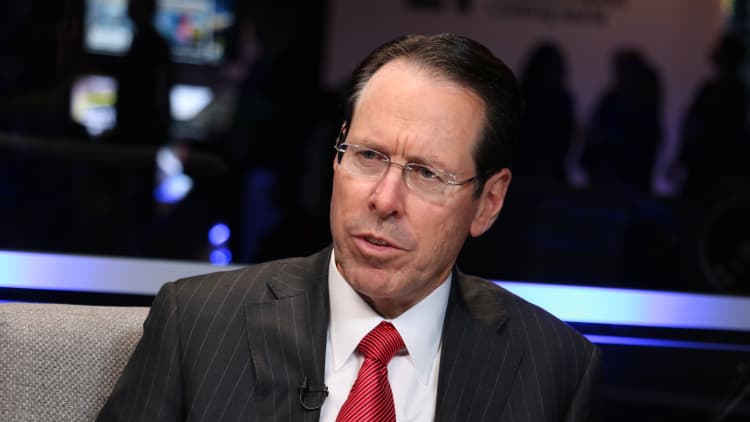
AT&T CEO Randall Stephenson called on fellow chief executives on Tuesday to speak up for racial justice following the police killing of George Floyd.
"All of us CEOs have large African American employee bodies. We owe it to them to make sure that we're speaking to this, that we're asking our policymakers to step up, that we're asking our political leaders to step up and recognize and just say it: 'We've got a problem,'" Stephenson said in a CNBC interview. "We have a big problem and it needs to be dealt with."
Floyd died last week while being restrained by a white Minneapolis police officer who kneeled on the unarmed black man's neck. His death ignited widespread protests across the nation, and several companies have since released statements and made donations in support of the black community.
But large companies need to be actively advocating for policy changes, Stephenson said on "Squawk Box."
"We have an imperative to begin to use our muscle and our influence to begin to effect policy change to address this," he said. "I think we as business leaders are going to need to put our shoulder into this and begin to try to move the ball."
"This is about justice. And when you're dealing with issues of just basic core justice that every CEO, every leader in America needs to step up and ask, 'What is the right thing to do?'" he added.
For example, Stephenson said that business leaders, who have widespread influence, should be pushing for law enforcement to stop policies that allow racial profiling.
"If I were to use those kinds of policies within AT&T, I would rightly be terminated, fired and probably sued," he said. "But we allow, we actually have systems, we have procedures that allow for racial profiling. Those kinds of policies need to be challenged."
Stephenson brought up a time when a fellow executive, who is black, discussed how he instructed his children how to act around the police. If stopped by the police when driving home at night, the kids were to get out of their car immediately and put their hands on the roof, Stephenson said.
"I'm thinking to myself when he told me that, I never gave that instruction to my kids," he said of the unnamed executive. "In fact, I always took great comfort in law enforcement's being around if my children were out at night. The only point being, the African American community is viewing this consistently, and it's a pervasive view."
The 60-year-old Stephenson will retire from his position on July 1. He will be succeeded as chief executive by President and COO John Stankey and will serve as executive chairman of the board until January.


